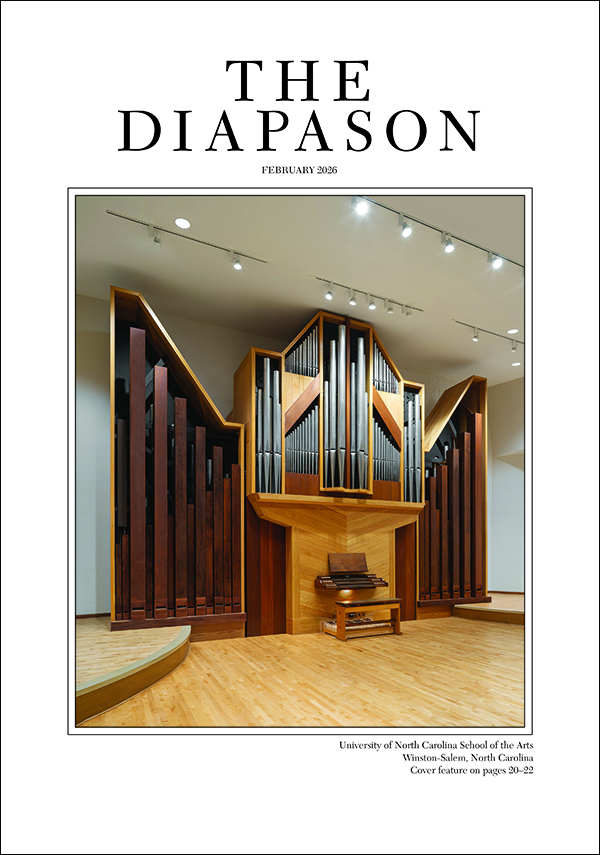
Henry S. Fusner, Nashville resident from 1970 to 2015, died February 2. He was 91. Born in Parkersburg, West Virginia, in 1923, Fusner grew up in New Jersey, earning bachelor’s and master’s degrees from the Juilliard School and a doctorate from the School of Sacred Music of Union Theological Seminary. His teachers included Gaston M. Dethier in organ and piano, Peter Wilhousky in conducting, Vittorio Gianini and Normand Lockwood in composition, and Clarence Dickinson in organ study.
Dr. Fusner held church positions in the New York City area, including the Church of St. Edward the Martyr in Manhattan and Emmanuel Baptist Church, Brooklyn. He moved to Cleveland, Ohio, in 1956 to be organist and choirmaster at the Church of the Covenant and teacher of organ and church music at the Cleveland Institute of Music. In 1970, he moved to Nashville to assume a similar position at First Presbyterian Church and as a teacher at the Blair School of Music, Vanderbilt University. Henry S. Fusner is survived by his niece, Dr. June Fusner Leyland (Gary), and nephews George R. Fusner, Jr. (Myra), and Neal Henry Fusner (Annaliesa).
Wilbur Held, 100, died March 24 in Claremont, California, a few months shy of his 101st birthday. Born August 20, 1914, in Des Plaines, Illinois, Held was an accomplished organist best known for his prolific compositions of sacred music in many forms. (See Larry Palmer’s article, “Celebrating Wilbur Held,” in our August 2014 issue, page 25.) In this issue, Nancy M. Raabe provides a remembrance on page 26.
Paul Jordan, 75, organist, composer, and former professor of music, died March 1. He was born in New York to Dr. Henry P. Jordan, a German diplomat who took refuge in the U.S. to avoid serving the Nazi regime, and Irene Brandt Jordan, linguist and physical educator; the family lived in Germany from 1952–55 upon Jordan’s father’s reinstatement in the German diplomatic service. Jordan attended Harvard University and Columbia University, and received graduate degrees from the Staatliche Hochschule für Musik in Frankfurt am Main (where he studied under Helmut Walcha), the Yale School of Music, and the American Conservatory of Music in Chicago (DMA). Jordan was organist and music director at the United Church on the Green in New Haven, Connecticut, and starting in 1973, a professor of music at Binghamton University (SUNY), New York for 20 years, where he taught organ, harpsichord, recorder, directed the Collegium Musicum, conducted the University Orchestra, and coached singers on German pronunciation. He also designed the organs in the United Church on the Green and Binghamton University, Anderson Center for the Performing Arts.
In his early career, among the first generation of musicians in America involved in the revival of early music, Jordan played recorder in Bach’s Brandenburg Concerto No. 4 with the New York Philharmonic under Leonard Bernstein. He also performed extensively on recorder with New York Trio da Camera (Grace Feldman, viola da gamba, Edward Brewer, harpsichord), and sang under Noah Greenberg.
As an organist, he performed at churches, cathedrals, and such halls as the Concertgebouw in Amsterdam and the Gewandhaus in Leipzig. Known as a Bach specialist, Jordan also studied the works of Dieterich Buxtehude, whose works would influence J. S. Bach himself; he conducted a series of concerts in 2007 (the 300th anniversary of Buxtehude’s death) called “The Buxtehude Project.”
As a composer and arranger, Jordan wrote many endings to J. S. Bach’s unfinished masterpiece, The Art of the Fugue. He was awarded a fellowship from the National Endowment for the Arts to commit the work to memory, and recorded the piece with his own ending (www.brioso.com/covers/BR128.htm).
Jordan published articles in magazines such as The American Recorder as well as a three-part article on Helmut Walcha, in celebration of Walcha’s 100th birthday, in The Diapason (October, November, and December 2007 issues); in the Peters Edition, Vol. II of Helmut Walcha’s Chorale Preludes, Jordan supplied the official translation of Walcha’s Notes on Interpretation. Beyond the realm of classical music, Paul Jordan was also passionate about more modern artists and works. He often played and promoted the music of Moondog, a renowned blind street musician and recording artist. In addition to his position at the United Church on the Green in New Haven, Jordan served as organist and music director in several Connecticut churches, including the First Congregational Church of Guilford, St. Andrew’s Episcopal Church in Madison, and the First Church of Christ, Scientist, Westport.
Paul Jordan is survived by his wife, Xilin Jordan, son, Libai, and brother, Don F. Jordan. Paul Jordan will be laid to rest in the family grave in Frankfurt am Main, Germany. A celebration of his life will be held on Sunday, June 7, 3:00 p.m., at Emmanuel Episcopal Church, Killingworth, Connecticut. In lieu of flowers, please send contributions to http://www.tibetfund.org.
(See Gavin Black’s tribute to Paul Jordan on pages 18–19 of this issue.)

